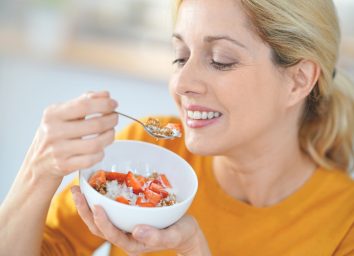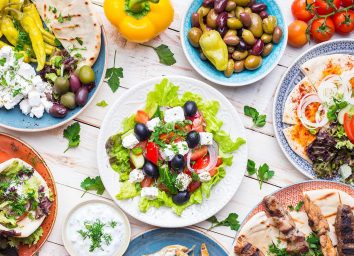6 Effortless Ways To Slow Aging After 60, Say Dietitians

Despite what many people in our society may say, aging is a beautiful thing. There are plenty of ways to embrace aging, find confidence in it, and ensure that you're aging in the healthiest way possible.
One of the best ways to pursue healthy aging is by eating foods that are full of helpful nutrients. While food isn't the only factor in your health as you age, it is one of the most important ones. To learn more about how we can incorporate healthy eating habits to slow the aging process, we talked with a few expert dietitians.
Continue reading to learn more, and for more healthy eating tips check out The 6 Best Vegetables You Should Be Eating Every Day.
Nourish your bones.
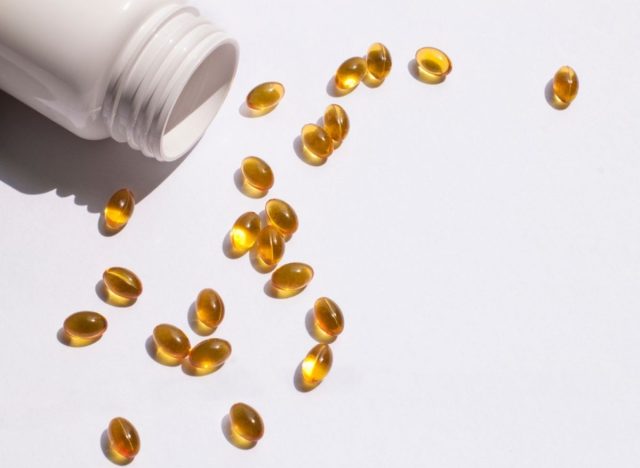
One of the ways you can care for your health through the aging process is to care for your bone health.
"A strong skeleton is more resistant to bone fractures that can slow you down and make you feel older than you are. Bones require adequate protein, calcium, vitamin D, magnesium, potassium, and other nutrients. Because of this, low-fat dairy foods, fruits, vegetables, legumes, nuts, and seeds help support bone health," says registered dietitian Elizabeth Ward, MS, RDN, co-author of The Menopause Diet Plan, A Natural Guide to Hormones, Health, and Happiness.
Eat adequate protein.
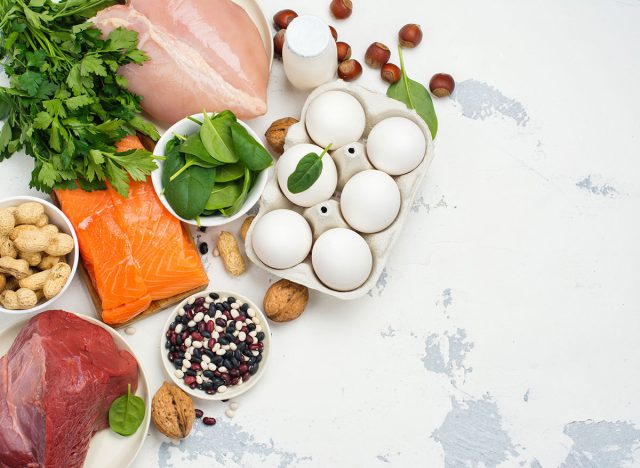
Protein is one of the most important nutrients you can have for healthy aging, but many people aren't getting enough on a daily basis.
"After age 60, the body has a harder time using protein, and experts recommend eating more than before. Getting enough protein as part of a balanced diet helps you to build and maintain muscle tissue along with resistance exercise. Muscle helps you look toned, burns more calories than fat tissue, and helps you stay active and energized. Most people need 25 to 30 grams of protein at every meal and should include protein in snacks to meet their needs," says Ward.
Eat seafood.
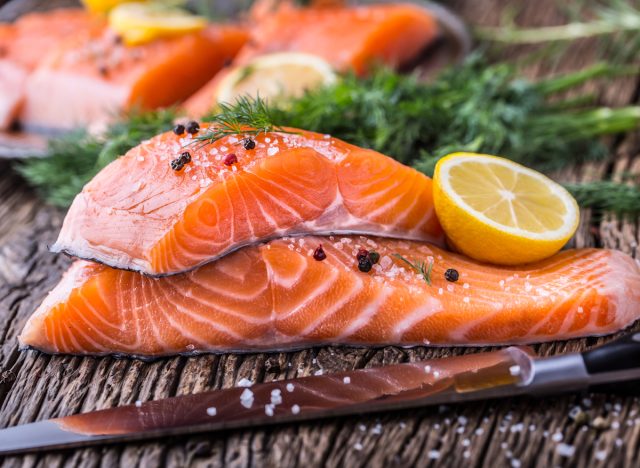
Seafood, especially fatty fish like salmon or mackerel, is extremely beneficial for healthy aging.
"Seafood is rich in protein, vitamins, minerals, and omega-3 fats. Omega-3 fats are healthy fats that promote heart and brain health by helping to keep arteries clear. Omega-3s are also necessary for proper vision," says Ward.
Eat more avocados.
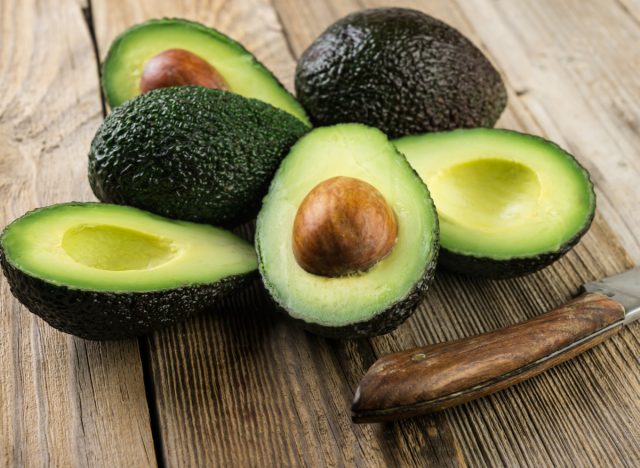
Along with seafood, avocados also provide healthy fats and can be helpful for those who can't get their healthy fats from fish!
"Avocados are high in the 'good for you' type of fat (monounsaturated fats), which helps with reducing spikes in blood sugar when incorporated as a balanced meal or snack with other foods. Monounsaturated fats found in avocados are also heart-healthy as they reduce LDL, or 'bad' cholesterol levels, while increasing HDL, 'good' cholesterol levels. Additionally, avocados are a rich source of potassium, which helps with our electrolyte balance and lowers blood pressure," says registered dietitian Rachel Fine, RD, the owner of To The Pointe Nutrition.
Eat fruits and vegetables.
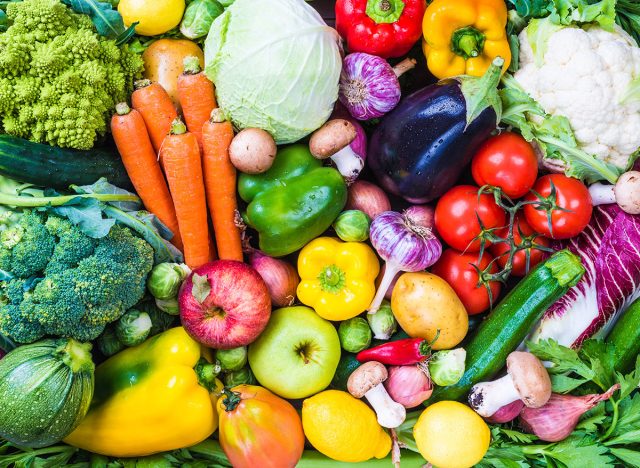
Getting enough fruits and vegetables on a daily basis is a crucial part of slowing down the aging process.
"Eat well-balanced meals every day with plenty of fruits and veggies. A healthy diet will help keep your weight in check, reduce stress on your heart (which can cause high blood pressure), build strong bones (which help prevent osteoporosis), improve digestion, and boost immunity against disease-causing bacteria," says registered dietitian Janet Coleman, RD with The Consumer Mag.
Eat more seeds.
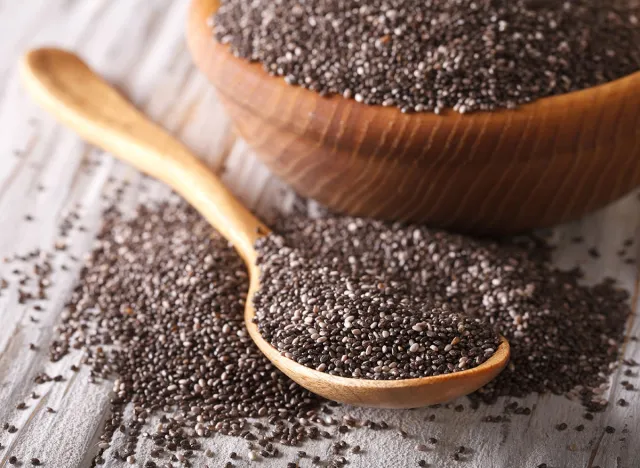
And lastly, incorporating flaxseeds or chia seeds into your diet can help in the aging process as well.
"Seeds such as flaxseeds and chia seeds can help with heart health and brain health, but can also help support healthy skin because of their high alpha linoleic acid content," says registered dietitian Vandana Sheth, RDN, CDCES, FAND, author of My Indian Table: Quick & Tasty Vegetarian Recipes.

